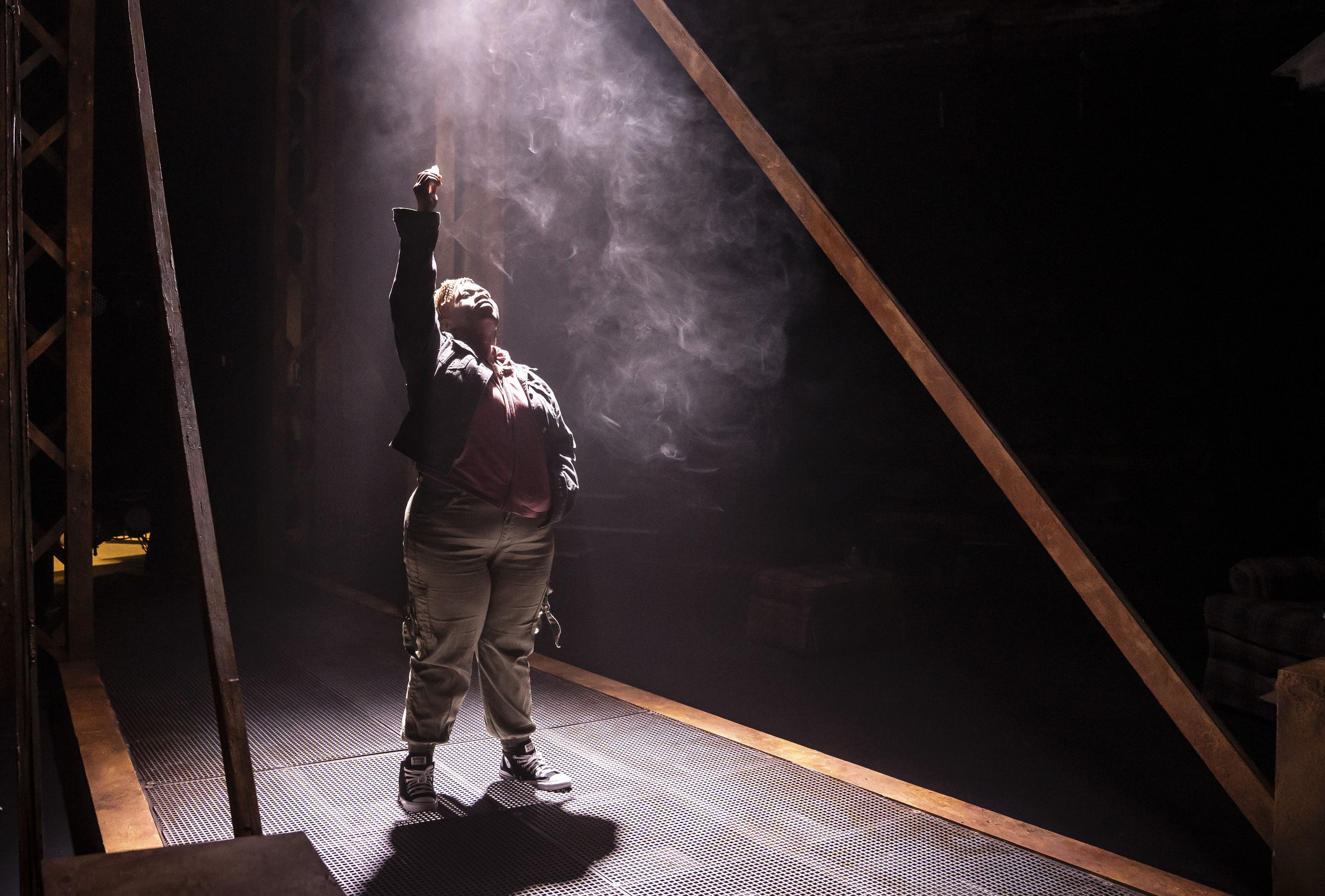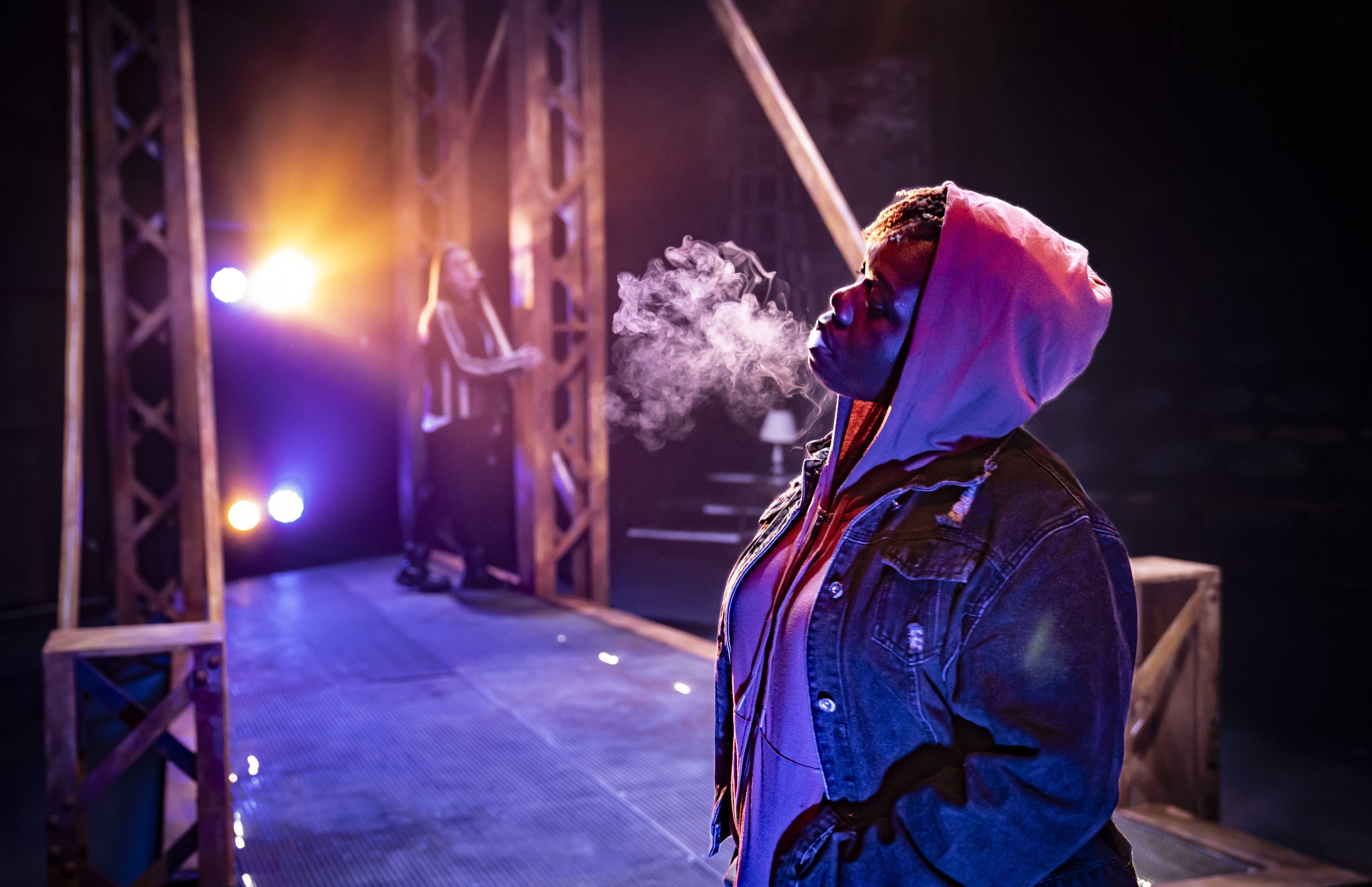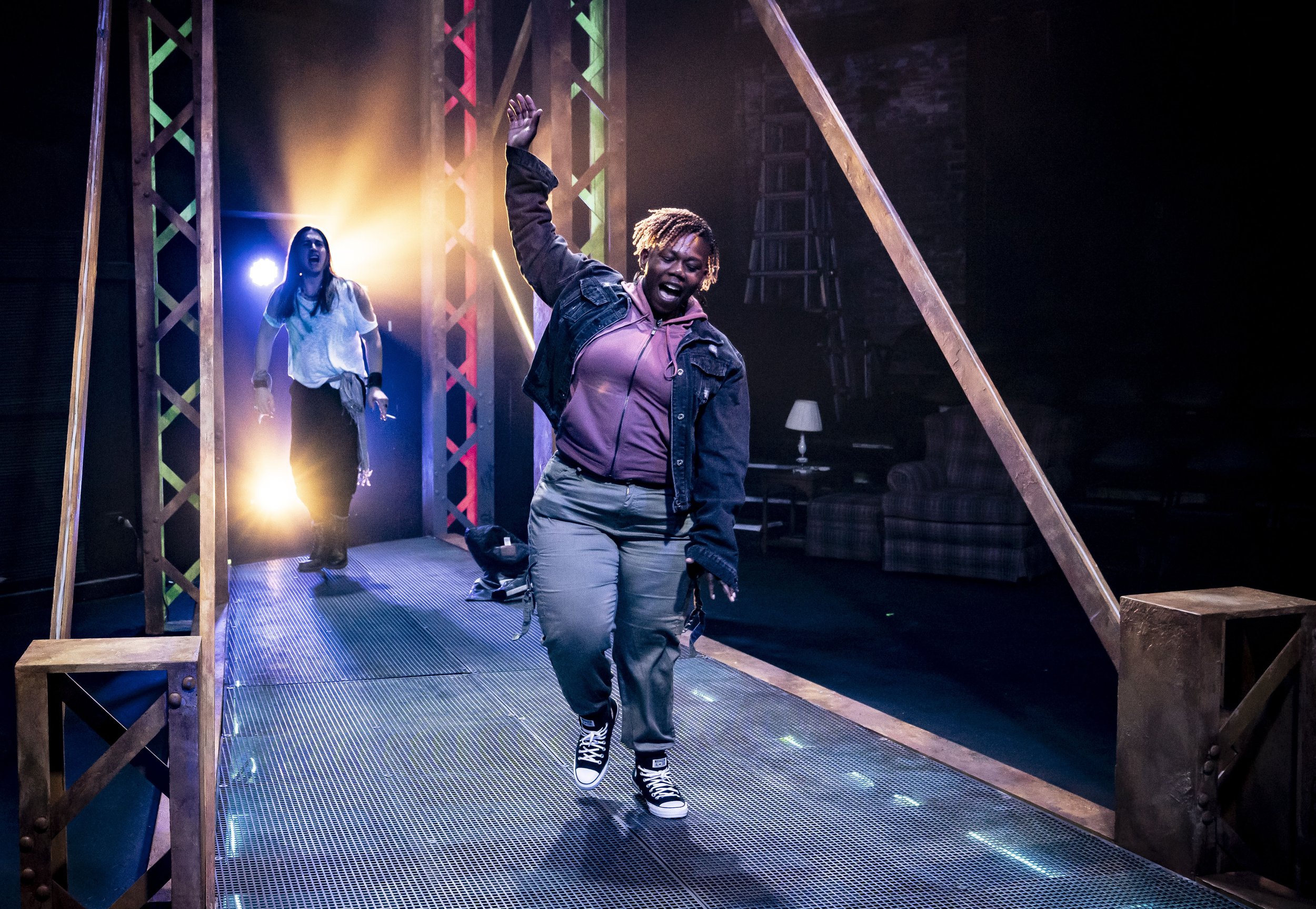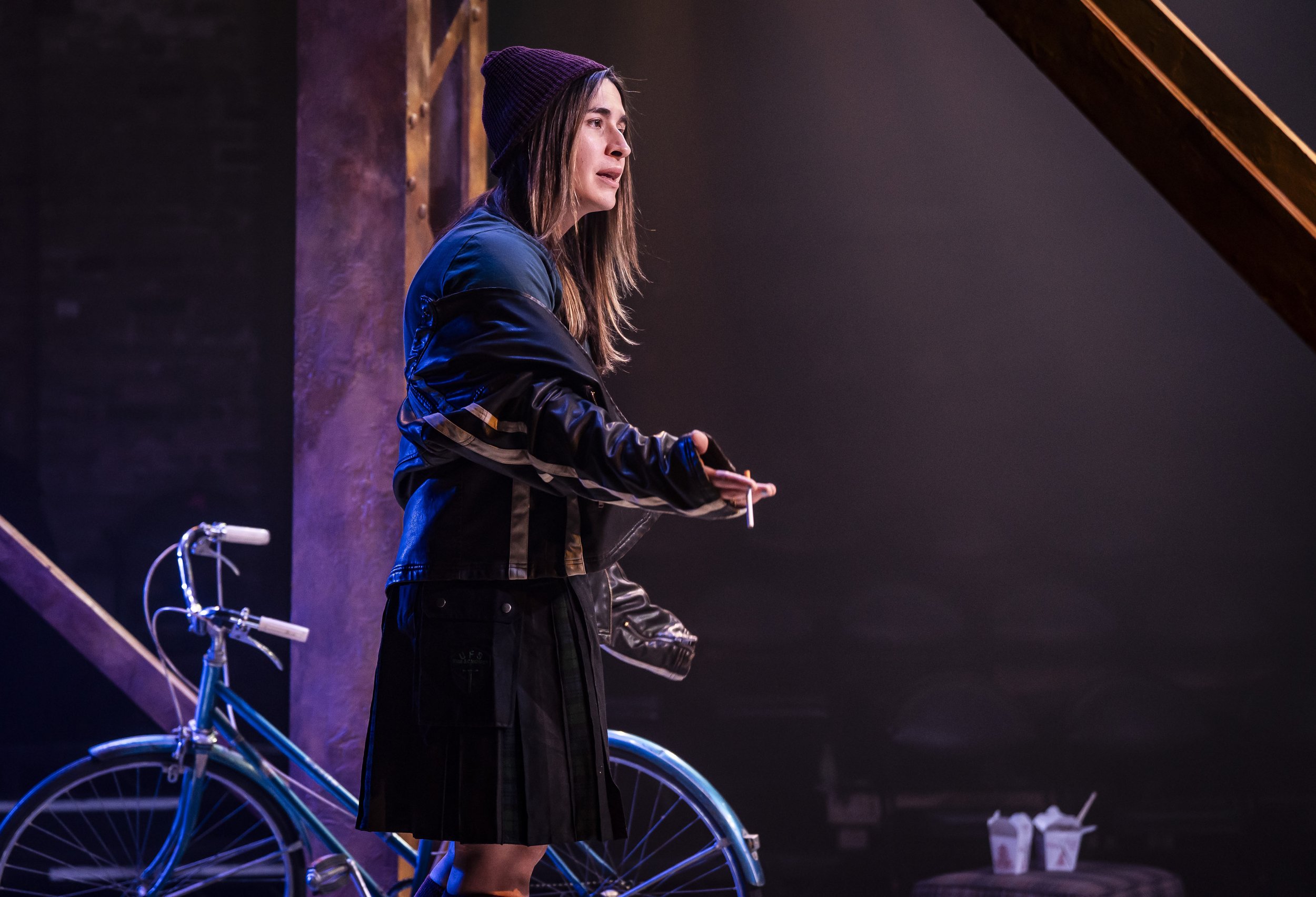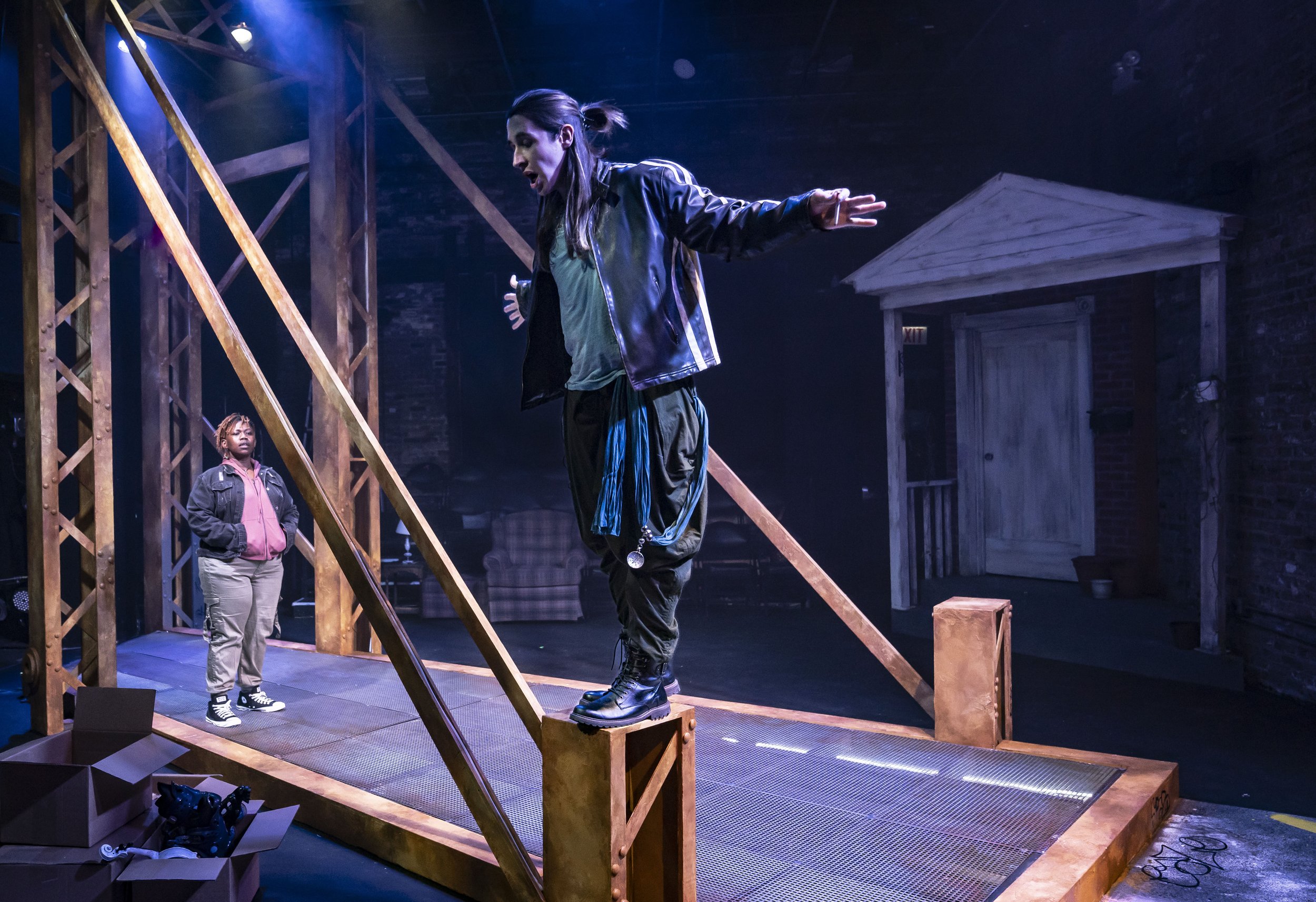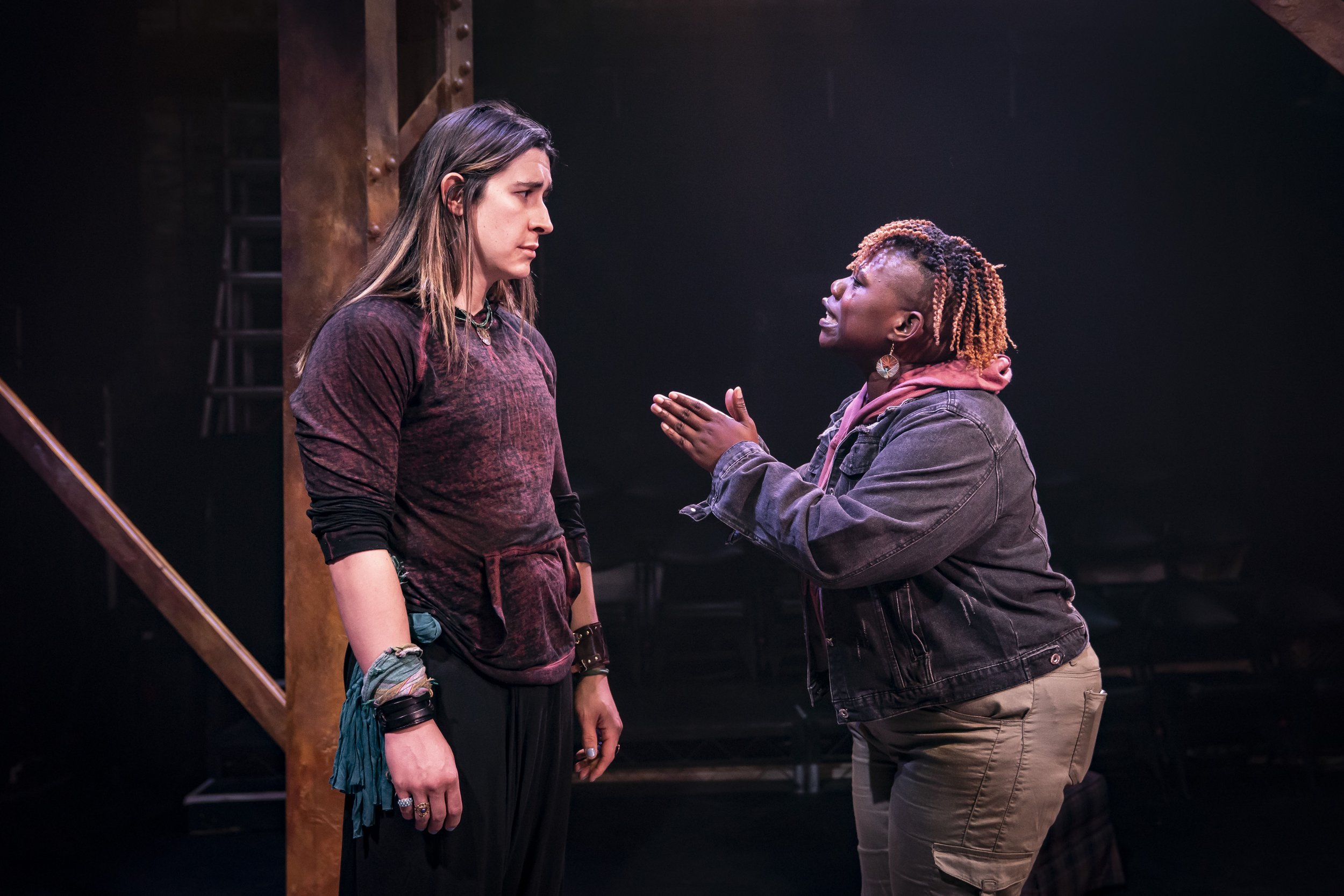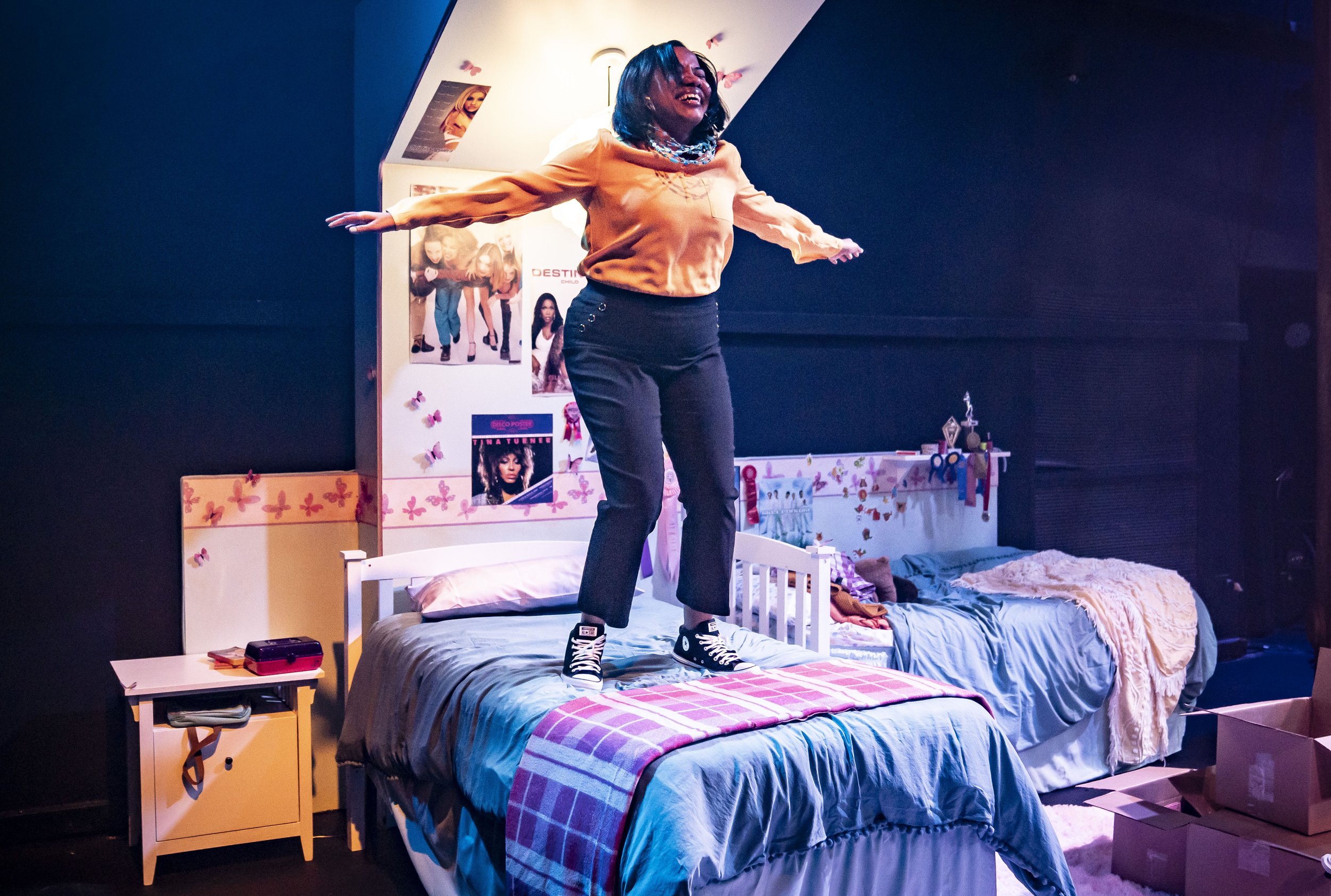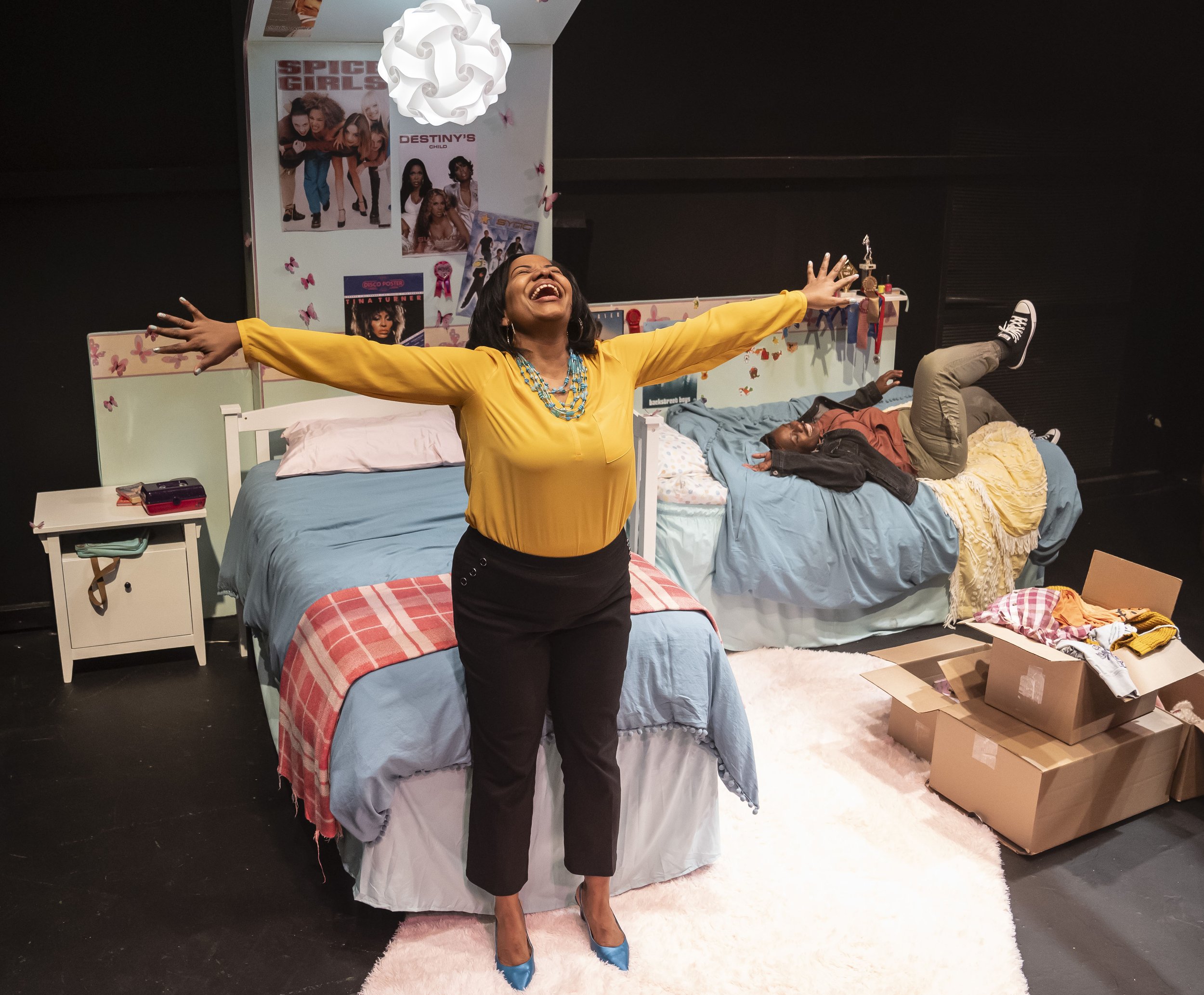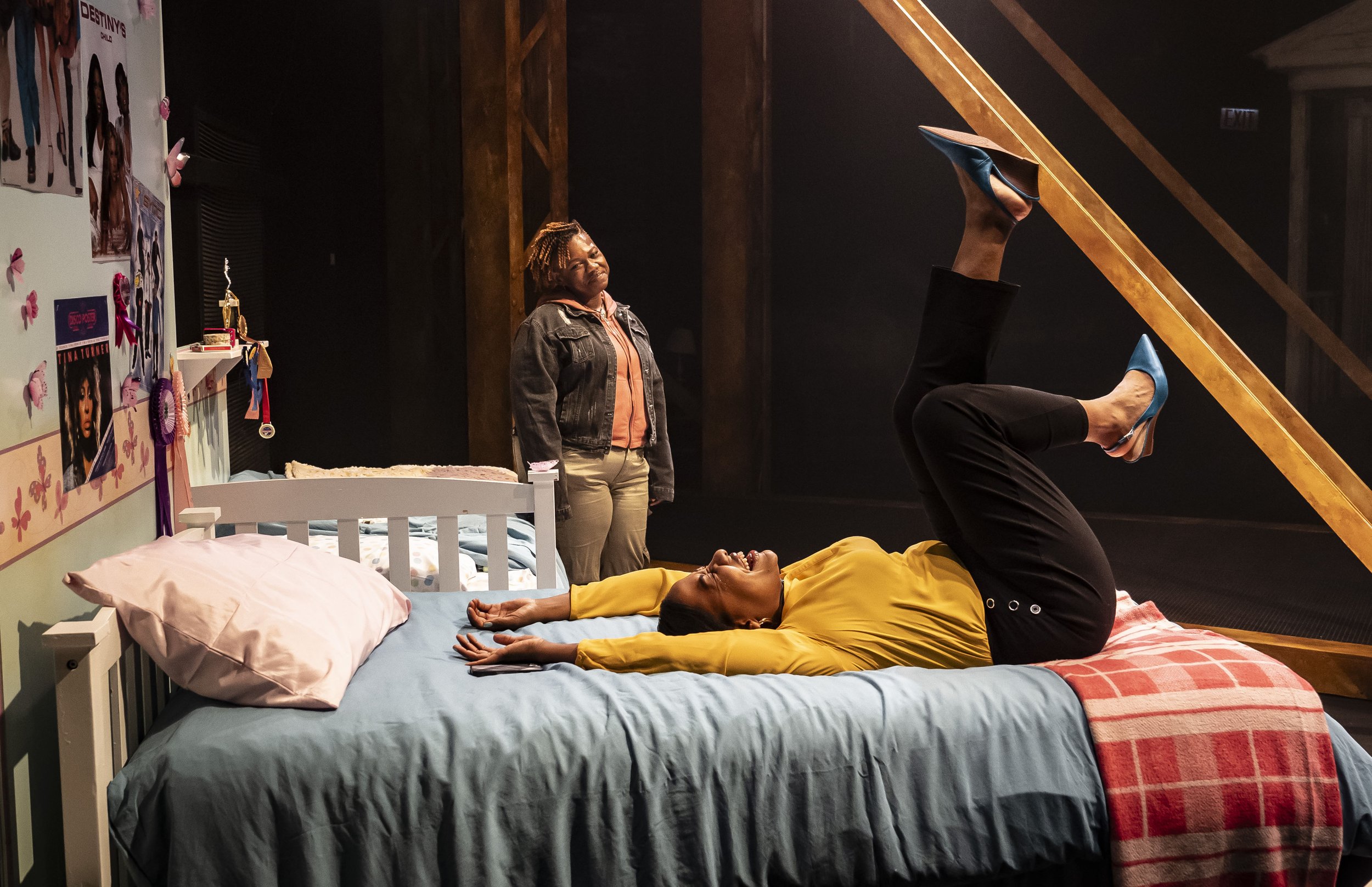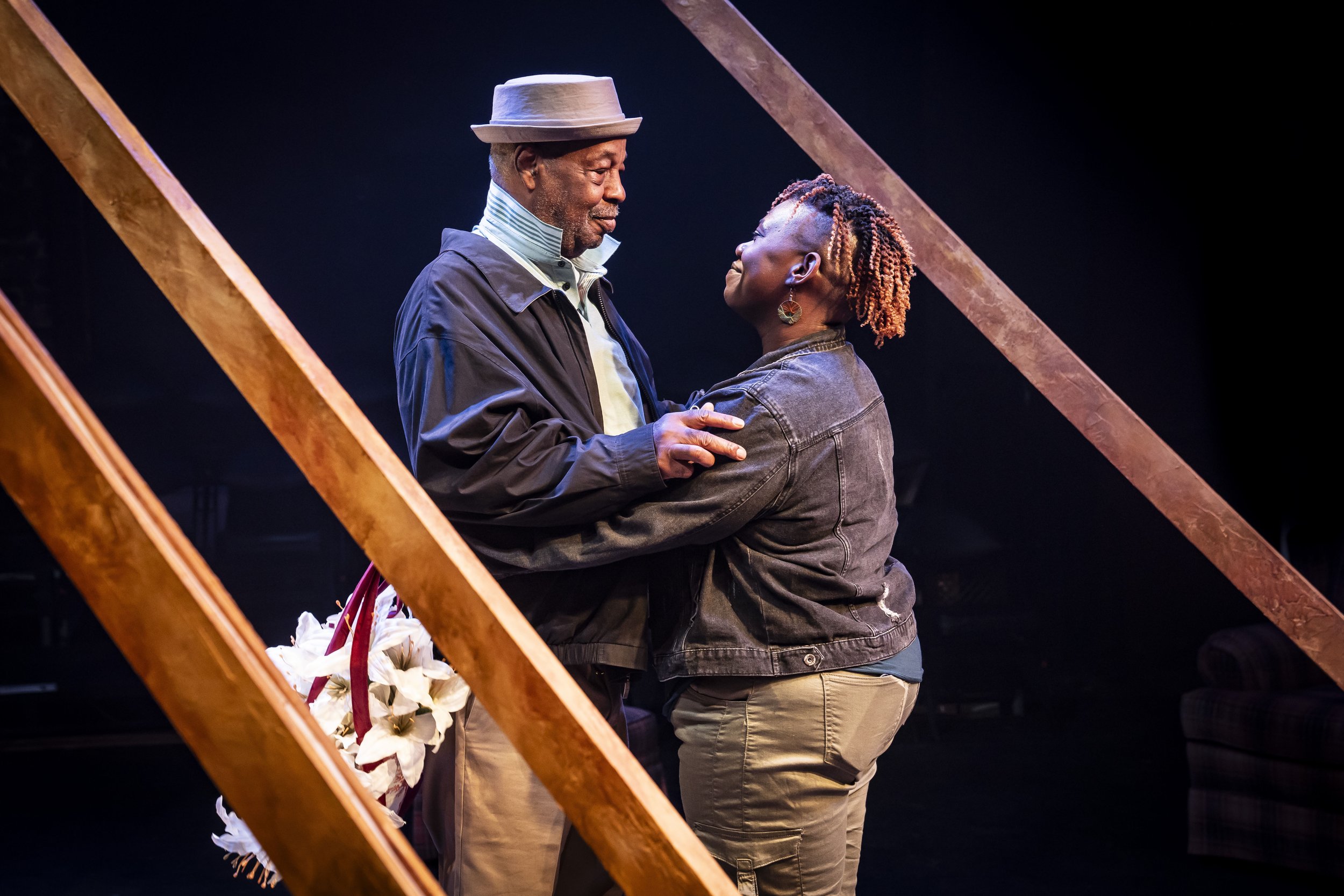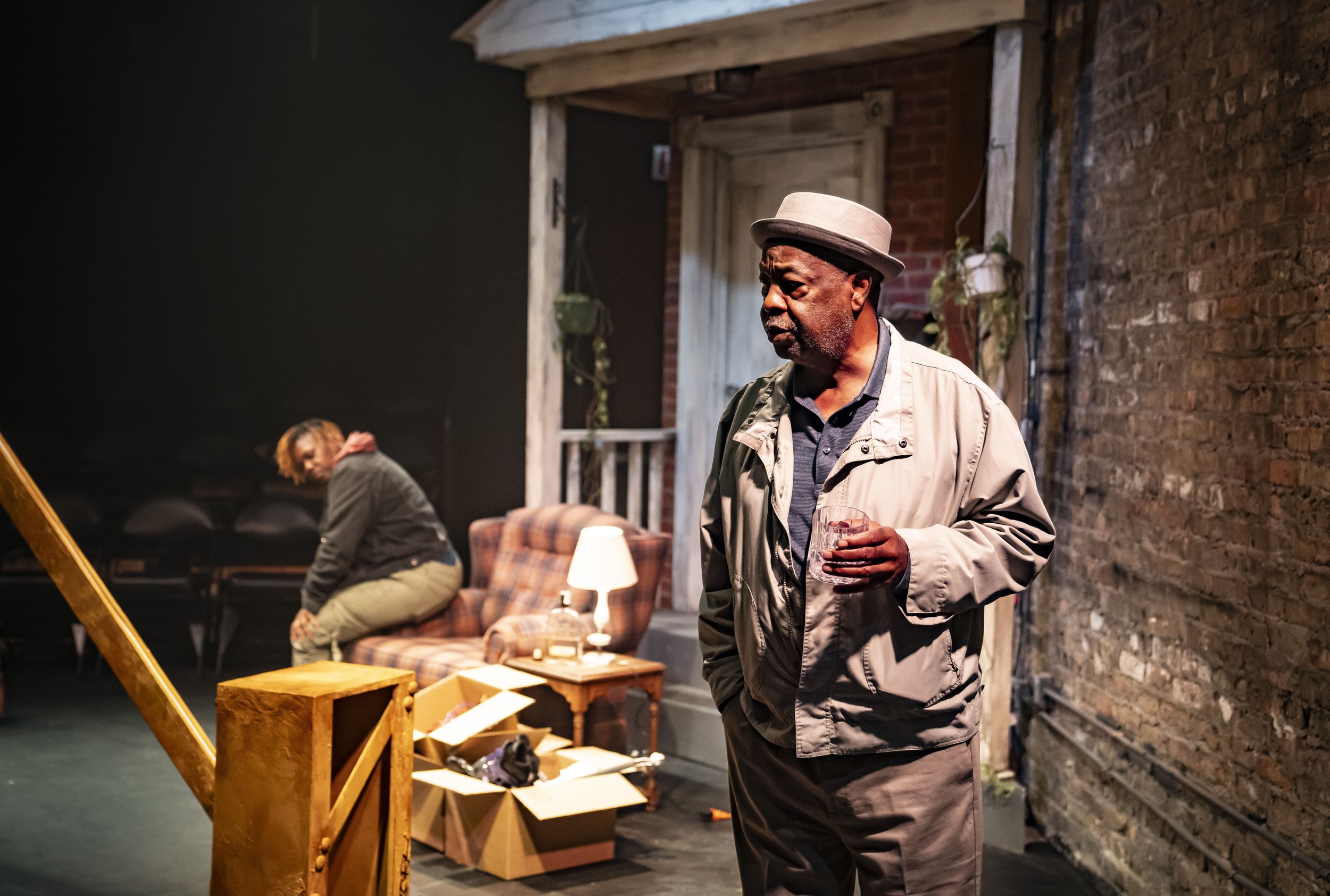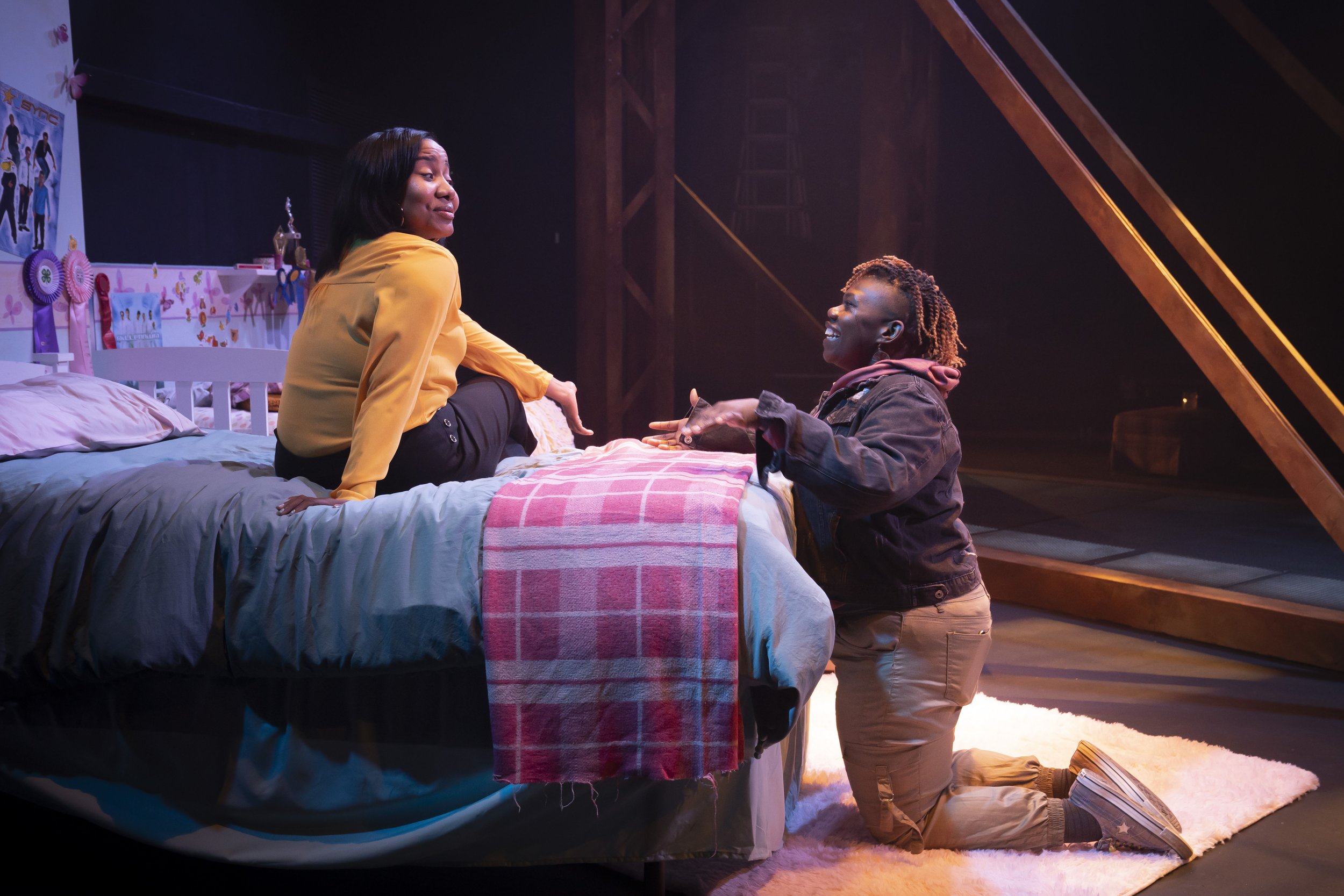JUMP
The single-word title "Jump" encapsulates the struggles of loss, fear of death, feelings of depression, understanding suicidal thoughts, and how to deal with the pressure of life. "Jump" is a play written by Charly Evon Simpson. It is an enthralling play that examines these storylines that ultimately affect all humanity. The play revolves around Fay's journey as she returns to her childhood home after losing her mother. Fay faces emotional and mental struggles along with incredible challenges while coming to terms with such a significant loss. The central location offers a breathtaking view of a picturesque bridge that captured Fay's parents' hearts. Fay's father, who is self-medicating and a borderline alcoholic, tells her that his wife loved the magnificent view of a bridge, so they decided to purchase the home close to it; even though they couldn't afford it, they envisioned it as a haven of healing and comfort. The father, distraught with the loss of his wife, decides to sell the house. As Fay approached the house, a sudden surge of flickering lights materialized. The intense visual stimuli triggered some distressing mental episodes, overwhelming her with a flood of painful emotions and memories. When the pain subsides, Fay sees her sister Judy coming to the house to await the news from their father. Jump takes the viewers through a series of captivating scenes throughout the story, with one of the paramount elements of these scenes being how Fay, the protagonist, is shown to experience a range of flashbacks and present-day conversations. These conversations are often with other characters, but one of the most significant dialogues is with a stranger named Hopkins, whom Fay meets on a bridge. The gauche dialogues with Hopkins about death and suicidal introspection tendencies were intriguing and thought-provoking, providing a pivotal understanding of how they dealt with issues that can be somewhat disturbing and therapeutic.
Their meetings are mainly at the bridge, where Fay walks to find solace from her recent loss. Hopkins comes to the bridge to cope with his grief and suicidal thoughts and plays a song on his phone, drawing them together in a playful, harmonized duet; breaking their awkward meeting on the bridge, they start a conversation. Hopkins could empathize and relate to her struggles and provided her with a sympathetic ear and a compassionate heart, and through witty and clumsy conversations that included why one vaped and the other smokes, freed Fay to open up, feeling grateful for the unexpected encounter on the bridge until Hopkins tells her why he came to the bridge. Now, the view isn't so wonderful anymore, and Fay has to deal with life without those she loved, how they departed, and wondering if Hopkins will be her next casualty. As you piece together the interaction of these characters and wonder what the central theme is, you may notice a slow start as the production begins, so connecting with the characters takes some time. But don't worry; as the story unfolds, this 90-minute play jolts you into an emotional and mental sphere of emotions, magically bewitching your attention.
Fay and Judy's relationship is a classic example of how sisters fight and argue, but their love for each other is unbreakable and everlasting. Two unforgettable scenes unfold between the sisters - one in their childhood bedroom and one on a bridge. In both scenes, Fay reveals how disconnected she feels from her sister and persistently asks her, "How are you doing," in an unforgettable scene while they are on the bridge. The question seems simple, yet the empathetic and frightening way it's asked will send shivers down your spine. Ultimately, Judy exposes that she is not there with Fay. Other powerful scenes are with Fay and her Dad, played by Alfred H. Wilson. The palpable tension between Pryor and Wilson reflected the emotional strain of their relationship, which was intensified by the loss of their loved ones. Wilson's belligerent behavior towards Fay as a father dealing with uncontrollable grief provides an in-depth look into the painful and abusive outcome of loss. His lashing comments about Fay's past and sharing with her that it should have been you intensified the need for counseling after traumatic grief. Despite the awkwardness of their interactions, the authenticity of their feelings was evident, making their situation all the more poignant. Jazzma Pryor's touching portrayal of Fay was genuinely remarkable. Her performance was moving and effectively conveyed the character's emotional and mental psyche. As the troublesome teen, who from the perspective of her father, grows to be intolerable with introverted emotions, Pryor's characterization of Fay, losing a sister to suicide, and dealing with her father's hurtful observation that Fay was more likely to follow in her sister's footsteps, made her performance a poignant reminder of the importance of our words and actions, and how they can have a lasting impact on those around us. Jeff Kurysz gave an equally charming performance as Hopkins. His charismatic awkwardness is appealing. As a result, he proved to be an excellent sparring partner for Fay, engaging her in challenging conversations that kept the audience hooked. The audience discovered the numerous qualities that make the bridge an alluring place through their interactions. Sister Judy (Jennifer Glasse) is, without a doubt, the most enigmatic character in the play. Glasse provides a fantastic performance of Judy's elusive and bizarre behaviors, childishly jumping and representing the excitement of falling back on the bed. We discover her emotional state via flashes of her relationship with her parents, her abusive relationship with her boyfriend, and her adolescent feelings of depression. The various scenes with Fay and Judy will leave the audience intrigued and curious about why Judy, who never helps pack items for the move, is at their childhood home. Or is she just a figment of Fay's imagination? Among her most touching moments are those that occur in conversation with Fay after her death, as Fay uncontrollably, through mental conjuring, questions Judy about things she wanted to know about her sister, trying to understand what she missed, why her mother brought them to the bridge and why her sister jumped.
As "Dad," Alfred H. Wilson is the atypical parent, born in the Golden Age of the '50s, who had that stern, disciplinary American culture male, void of emotions, that dealt with traumatic situations through alcoholic consumption. Wilson's character loses his identity after his wife's death and struggles to have a meaningful relationship with his daughters. Wilson is an outstanding performer and a natural in his roles. He is an ailing father, unable to process his life beyond his loss and determined to forget the memories of the home his wife wanted, which was a painful reminder that she was gone. Director Amber Montgomery, a rising star, skillfully balances comedy and drama in Jump, which provides an inspiring testament to the power of love and the need for understanding the mental health of loved ones. The cast artistry is incredible, touching the audience's hearts to remember that we must celebrate the times we have the one we love.
⭐⭐⭐⭐
Shattered Globe Theatre
JUMP
By Charly Evon Simpson
Directed by Amber Montgomery
April 19 - June 1, 2024
Thanks for visiting Let’s Play! For tickets, click the above logo, and for additional reviews, click below.




